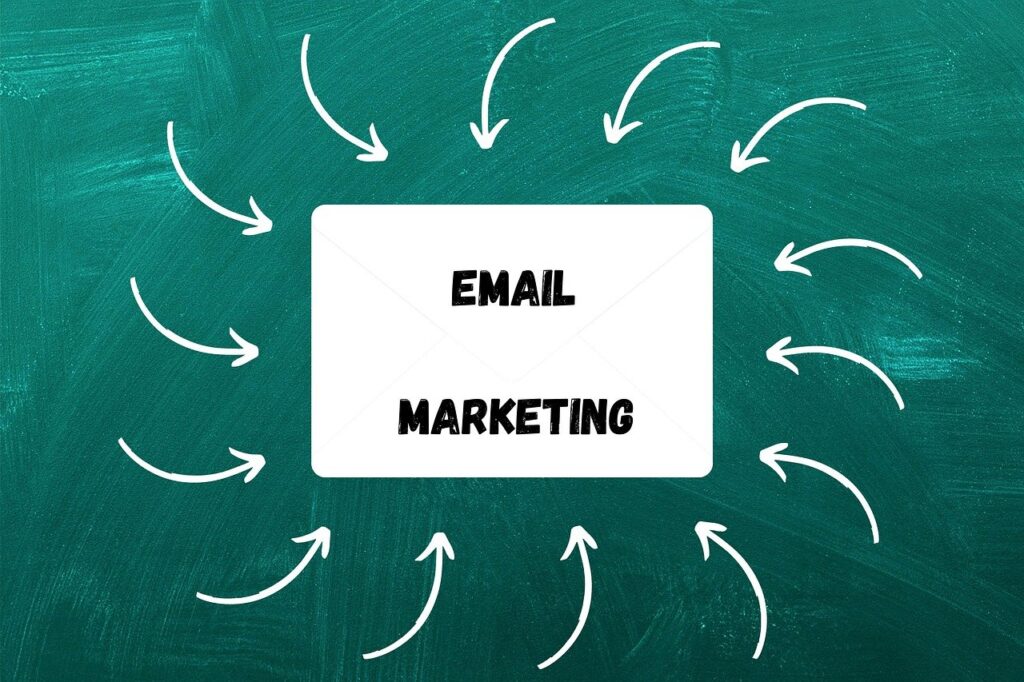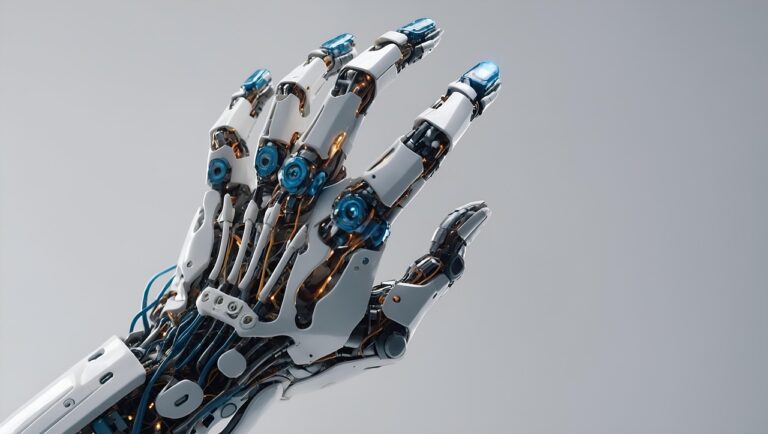What is Digital Marketing and its impact on business
Digital marketing is the promotion of a product, service, or brand using digital means such as search engines, social media, email, websites, and mobile apps. Unlike traditional TV, radio, and print marketing, it uses internet-based platforms to communicate with a wider and more targeted audience

The influence of digital marketing on companies is vast in that it enables them to reach more people, get the right customers, and grow their businesses at a faster rate. Companies can employ targeted advertisements and SEO to become more noticeable, establish deeper customer relationships via social media and email, and track performance with live analytics. This results in greater brand awareness, enhanced customer engagement, improved return on investment (ROI), and finally, more sales. Short, digital marketing makes industries more competitive, efficient, and customer-oriented in the digital world.
Key Components of Digital Marketing
1. Search Engine Optimization (SEO):
Optimizing websites to rank higher on search engines like Google.
![Search Engine Optimization [SEO]](https://harshyfathima.com/wp-content/uploads/2025/10/seo-7168460_1280-1020x1024.png)
Search Engine Optimization, also referred to as SEO, is the practice of enhancing a site’s ranking on search engines such as Google, Bing, or Yahoo. The aim is to get a site higher in search rankings when individuals type in related keywords. With most visitors not checking further than page one of Google, a high ranking can bring immense traffic, leads, and sales to a company.
Important SEO Components
On-Page SEO : Optimizing web content with relevant keywords.
Creating engaging meta titles and descriptions.
Applying header tags (H1, H2, H3) for page organization.
Adding alt text to images and using proper file names.
Off-Page SEO : Obtaining high-quality backlinks from quality websites.
Guest blogging, influencer outreach, and social sharing.
Brand mentions across the internet.
Technical SEO : Optimizing website speed and mobile-friendliness.
Repairing broken links, errors, and crawl problems.
Submitting XML sitemaps to search engines.
Enabling HTTPS for website security.
Local SEO : Optimizing Google Business Profile for local search.
Applying location-based keywords (“best salon in Mangalore”).
Acquiring reviews and citations from local directories.
Content SEO : Publishing high-quality, informative, and engaging content.
Utilizing blogs, articles, videos, and infographics to respond to user questions.
Keeping the content updated to remain relevant.
Why SEO is Important for Businesses
Makes one visible and increases traffic: A well-optimized website gets more visitors.
Low-cost marketing: Unlike paid ads, organic traffic is free.
Gains trust and credibility: Being top-ranking indicates reliability to users.
Improved user experience: SEO enhances site usability, speed, and navigation.
Long-term growth: SEO creates sustainable online presence in the long run.
2. Content Marketing:
Creating valuable content (blogs, videos, infographics) to attract and engage audiences.

Content Marketing is a planned strategy that centers on developing and distributing valuable, relevant, and consistent content to capture and establish a good relationship with a target audience. Rather than the direct promotion of products or services, it offers information, solutions, or entertainment that establishes trust and makes a brand an expert in its field.
Types of Content Used in Content Marketing
Blog Posts & Articles – Informational and SEO-optimized blogs assist companies to rank higher on search engines while offering solutions to customer questions.
Videos – Interactive content such as tutorials, product demonstrations, and storytelling videos drive user engagement and sharability.
Infographics – Attractive visuals break down information into an easily consumable format and are extremely shareable on platforms.
E-books & Whitepapers – Comprehensive resources that build thought leadership and can be used for lead generation.
Social Media Content – Short-form posts, reels, and stories that engage audiences in an interactive manner.
Podcasts & Webinars – Audio-visual formats that enable more in-depth discussions and community building.
Advantages of Content Marketing to Businesses
Creates Brand Awareness: Quality content raises awareness and enables individuals to find your business.
Creates Authority: Sharing expert advice establishes trust and makes a brand a market leader.
Drives Organic Traffic: SEO content brings steady visitors without depending solely on advertising.
Engages and Educates Customers: Responding to customer queries through content builds trust.
Supports Sales Funnel: Content guides leads through all stages—from awareness to decision.
Encourages Sharing & Virality: Engaging content is shared on social media, increasing reach.
Social Media Marketing (SMM)
Using platforms like Facebook, Instagram, LinkedIn, and TikTok for brand promotion

Social Media Marketing is the art of leveraging social sites such as Facebook, Instagram, LinkedIn, TikTok, and Twitter (X) to market products, services, or brands. It is more than simply posting content—it encompasses creating a community, interacting with followers, and executing targeted campaigns to get to the audience that matters.
Key Components of Social Media Marketing
Content Creation & Posting-Posting pictures, videos, reels, stories, and updates that are on brand.Producing high-quality, engaging content that will generate engagement.
Community Engagement – Engaging with comments, messages, and reviews to create a relationship.Conducting polls, Q&A sessions, and live videos to engage with followers.
Paid Advertising – Operating paid ads on networks such as Facebook Ads or Instagram Ads to target specific groups.Utilizing retargeting campaigns to convert users who have already expressed interest
Analytics & Tracking -Tracking reach, likes, shares, clicks, and conversions.Utilizing insights to optimize strategies for enhanced performance.
Influencer & Collaboration Marketing – Collaborating with influencers or micro-creators to engage broader audiences.Co-creating campaigns with collaborating brands for cross-promotion
Benefits of Social Media Marketing for Businesses
- Boosts Brand Awareness: Consistent social presence helps businesses stay visible.
- Drives Targeted Traffic: Ads and posts can be shown to specific age groups, interests, and locations.
- Enhances Customer Engagement: Direct communication builds trust and loyalty.
- Generates Leads & Sales: Social platforms can convert followers into paying customers.
- Cost-Effective Marketing: Compared to traditional advertising, social media marketing can be more affordable and measurable.
- Strengthens Brand Personality: Businesses can showcase their values, culture, and personality to connect emotionally with audiences.
Email Marketing:
Sending personalized campaigns to nurture customer relationships.

Email Marketing is a highly effective form of digital marketing that emphasizes sending targeted messages and campaigns directly to the inbox of a customer. In contrast to social media, where content has to vie for the attention of readers, email presents a more direct and personalized method of communicating with audiences
Key Elements of Email Marketing
Personalized Campaigns – Employing customer information (name, purchase history, interests) to personalize messages.
Audience segmentation by interests, location, or behavior.
Marketing Email Types :
Newsletters: Periodic updates, industry trends, and brand narratives.
Promotional Emails: Offers, coupons, and product releases.
Welcome Emails: Welcoming new subscribers with warm greetings.
Transactional Emails: Order confirmations, receipts, and shipping notifications.
Re-engagement Emails: Win-back campaigns for inactive subscribers.
Automation & Tools
Automated email sequences (welcome sequence, cart reminder, follow-ups).
Tools such as Mailchimp, HubSpot, or ConvertKit automate campaigns.
Design & Content
Effective subject lines to increase open rates.
Mobile-responsive templates with attention-grabbing visuals and CTAs (Call-to-Action).
Brief, useful content that drives clicks and conversions.
Benefits of Email Marketing for Businesses
- Direct Communication: Reaches customers straight in their inbox.
- Cost-Effective: Affordable compared to traditional advertising.
- High ROI: Consistently delivers one of the highest returns among digital channels.
- Builds Stronger Relationships: Regular communication keeps customers engaged.
- Encourages Conversions: Personalized recommendations increase sales.
- Measurable Results: Open rates, click-through rates, and conversions can be tracked easily.
Conclusion
Digital marketing has revolutionized how businesses engage with customers, providing affordable, measurable, and highly targeted techniques that conventional marketing cannot deliver. From content marketing and SEO to social media marketing and email marketing, digital technology empowers all sizes of business to raise visibility, foster greater connections, and achieve steady growth. Its reach extends beyond sales—it establishes brand trust, improves customer engagement, and yields long-term competitive edge. In today’s digital-first economy, businesses that adopt digital marketing are not only surviving but thriving, while those who do not take it in account risk becoming irrelevant.

